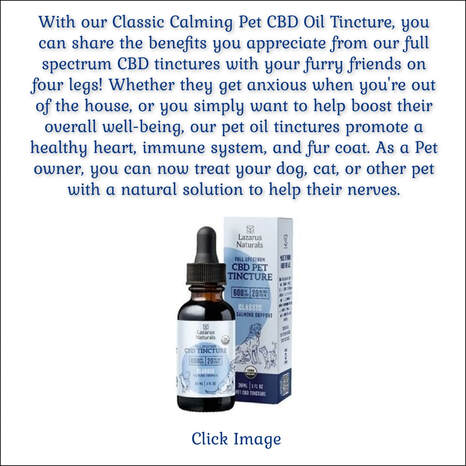
By Cornell University
What is FIP?
Feline infectious peritonitis (FIP) is a viral disease of cats caused by certain strains of a virus called the feline coronavirus. Most strains of feline coronavirus are avirulent, which means that they do not cause disease, and are referred to as feline enteric coronavirus. Cats infected with a feline coronavirus generally do not show any symptoms during the initial viral infection, and an immune response occurs with the development of antiviral antibodies. In a small percent of infected cats (5 to 10 percent), either by a mutation of the virus or by an aberration of the immune response, the infection progresses into clinical FIP. The virus is then referred to as feline infectious peritonitis virus (FIPV). With the assistance of the antibodies that are supposed to protect the cat, white blood cells are infected with virus, and these cells then transport the virus throughout the cat's body. An intense inflammatory reaction occurs around vessels in the tissues where these infected cells locate, often in the abdomen, kidney, or brain.
What is FIP?
Feline infectious peritonitis (FIP) is a viral disease of cats caused by certain strains of a virus called the feline coronavirus. Most strains of feline coronavirus are avirulent, which means that they do not cause disease, and are referred to as feline enteric coronavirus. Cats infected with a feline coronavirus generally do not show any symptoms during the initial viral infection, and an immune response occurs with the development of antiviral antibodies. In a small percent of infected cats (5 to 10 percent), either by a mutation of the virus or by an aberration of the immune response, the infection progresses into clinical FIP. The virus is then referred to as feline infectious peritonitis virus (FIPV). With the assistance of the antibodies that are supposed to protect the cat, white blood cells are infected with virus, and these cells then transport the virus throughout the cat's body. An intense inflammatory reaction occurs around vessels in the tissues where these infected cells locate, often in the abdomen, kidney, or brain.
It is this interaction between the body's own immune system and the virus that is responsible for the disease. Once a cat develops clinical FIP involving one or many systems of the cat's body, the disease is progressive and is almost always fatal.
The way clinical FIP develops as an immune-mediated disease is unique, unlike any other viral disease of animals or humans.
The way clinical FIP develops as an immune-mediated disease is unique, unlike any other viral disease of animals or humans.
Is my cat at risk for developing FIP?
Any cat that carries any coronavirus is potentially at risk for developing FIP. However, cats with weak immune systems are most likely to develop the disease, including kittens, cats already infected with feline leukemia virus (FeLV), and geriatric cats. Most cats that develop FIP are under two years of age, but cats of any age may develop the disease.
FIP is not a highly contagious disease, since by the time the cat develops clinical disease only a small amount of virus is being shed. Feline coronavirus can be found in large quantities in the saliva and feces of cats during the acute infection, and to a lesser extent in recovered or carrier cats, so it can be transmitted through cat-to-cat contact and exposure to feces. The virus can also live in the environment for several weeks. The most common transmission of feline coronavirus occurs when infected female cats pass along the virus to their kittens, usually when the kittens are between five and eight weeks of age.
FIP is relatively uncommon in the general cat population. However, the disease rate is much higher in multiple-cat populations, such as some shelters and catteries.
Any cat that carries any coronavirus is potentially at risk for developing FIP. However, cats with weak immune systems are most likely to develop the disease, including kittens, cats already infected with feline leukemia virus (FeLV), and geriatric cats. Most cats that develop FIP are under two years of age, but cats of any age may develop the disease.
FIP is not a highly contagious disease, since by the time the cat develops clinical disease only a small amount of virus is being shed. Feline coronavirus can be found in large quantities in the saliva and feces of cats during the acute infection, and to a lesser extent in recovered or carrier cats, so it can be transmitted through cat-to-cat contact and exposure to feces. The virus can also live in the environment for several weeks. The most common transmission of feline coronavirus occurs when infected female cats pass along the virus to their kittens, usually when the kittens are between five and eight weeks of age.
FIP is relatively uncommon in the general cat population. However, the disease rate is much higher in multiple-cat populations, such as some shelters and catteries.
What are the symptoms of FIP?
Cats that have been initially exposed to the feline coronavirus usually show no obvious symptoms. Some cats may show mild upper respiratory symptoms such as sneezing, watery eyes, and nasal discharge. Other cats may experience a mild intestinal disease and show symptoms such as diarrhea. Only a small percentage of cats that are exposed to the feline coronavirus develop FIP-and this can occur weeks, months, or even years after initial exposure.
In cats that develop FIP, the symptoms can appear to be sudden since cats have an amazing ability to mask disease until they are in a crisis state. Once symptoms develop, often there is increasing severity over the course of several weeks, ending in death. Generally, these cats first develop nonspecific symptoms such as loss of appetite, weight loss, depression, rough hair coat, and fever.
There are two major forms of FIP, an effusive, or "wet" form, and a noneffusive, or "dry" form. Generally, cats will exhibit the signs of the noneffusive form FIP more slowly than the effusive form. Symptoms generally include chronic weight loss, depression, anemia, and a persistent fever that does not respond to antibiotic therapy.
The effusive form of FIP is characterized by an accumulation of fluid in the abdomen, or less commonly in the chest. Early in the disease, the cat may exhibit similar symptoms to the dry form, including weight loss, fever, loss of appetite, and lethargy. The wet form of the disease often progresses rapidly, and the cat may quickly appear pot-bellied due to fluid accumulation in the abdomen. When the fluid accumulation becomes excessive, it may become difficult for the cat to breathe normally.
FIP can be difficult to diagnose because each cat can display different symptoms that are similar to those of many other diseases.
Cats that have been initially exposed to the feline coronavirus usually show no obvious symptoms. Some cats may show mild upper respiratory symptoms such as sneezing, watery eyes, and nasal discharge. Other cats may experience a mild intestinal disease and show symptoms such as diarrhea. Only a small percentage of cats that are exposed to the feline coronavirus develop FIP-and this can occur weeks, months, or even years after initial exposure.
In cats that develop FIP, the symptoms can appear to be sudden since cats have an amazing ability to mask disease until they are in a crisis state. Once symptoms develop, often there is increasing severity over the course of several weeks, ending in death. Generally, these cats first develop nonspecific symptoms such as loss of appetite, weight loss, depression, rough hair coat, and fever.
There are two major forms of FIP, an effusive, or "wet" form, and a noneffusive, or "dry" form. Generally, cats will exhibit the signs of the noneffusive form FIP more slowly than the effusive form. Symptoms generally include chronic weight loss, depression, anemia, and a persistent fever that does not respond to antibiotic therapy.
The effusive form of FIP is characterized by an accumulation of fluid in the abdomen, or less commonly in the chest. Early in the disease, the cat may exhibit similar symptoms to the dry form, including weight loss, fever, loss of appetite, and lethargy. The wet form of the disease often progresses rapidly, and the cat may quickly appear pot-bellied due to fluid accumulation in the abdomen. When the fluid accumulation becomes excessive, it may become difficult for the cat to breathe normally.
FIP can be difficult to diagnose because each cat can display different symptoms that are similar to those of many other diseases.
Can my cat be tested for FIP?
One of the most difficult aspects of FIP is that there is no simple diagnostic test. The ELISA, IFA, and virus-neutralization tests detect the presence of coronavirus antibodies in a cat, but these tests cannot differentiate between the various strains of feline coronavirus. A positive result means only that the cat has had a prior exposure to coronavirus, but not necessarily one that causes FIP.
The number that is reported from these tests is called an antibody titer. Low titers indicate a small amount of coronavirus antibodies, while high titers indicate much greater amounts of antibodies. A healthy cat with a high titer, however, is not necessarily more likely to develop FIP or be a carrier of an FIP-causing coronavirus than a cat with a low titer. A cat with a high titer is also not necessarily protected against developing FIP in the future.
Other tests have been developed that can detect parts of the virus itself. The immunoperoxidase test detects virus-infected cells in the tissue, but a biopsy of affected tissue is necessary for evaluation. Another antigen test uses polymerase chain reaction (PCR) to detect viral genetic material in tissue or body fluid. Although this test shows promise, PCR is presently only capable of detecting coronaviruses in general, not necessarily those that cause FIP.
To date, there is no way to screen healthy cats for the risk of developing FIP, and the only way to definitively diagnose FIP is by biopsy, or examination of tissues at autopsy. Generally, veterinarians may rely on a presumptive diagnosis, which can be made with a relatively high degree of confidence by evaluation of the cat's history, presenting symptoms, examination of fluid if it is present, and the results of supporting laboratory tests including a positive coronavirus antibody titer.
One of the most difficult aspects of FIP is that there is no simple diagnostic test. The ELISA, IFA, and virus-neutralization tests detect the presence of coronavirus antibodies in a cat, but these tests cannot differentiate between the various strains of feline coronavirus. A positive result means only that the cat has had a prior exposure to coronavirus, but not necessarily one that causes FIP.
The number that is reported from these tests is called an antibody titer. Low titers indicate a small amount of coronavirus antibodies, while high titers indicate much greater amounts of antibodies. A healthy cat with a high titer, however, is not necessarily more likely to develop FIP or be a carrier of an FIP-causing coronavirus than a cat with a low titer. A cat with a high titer is also not necessarily protected against developing FIP in the future.
Other tests have been developed that can detect parts of the virus itself. The immunoperoxidase test detects virus-infected cells in the tissue, but a biopsy of affected tissue is necessary for evaluation. Another antigen test uses polymerase chain reaction (PCR) to detect viral genetic material in tissue or body fluid. Although this test shows promise, PCR is presently only capable of detecting coronaviruses in general, not necessarily those that cause FIP.
To date, there is no way to screen healthy cats for the risk of developing FIP, and the only way to definitively diagnose FIP is by biopsy, or examination of tissues at autopsy. Generally, veterinarians may rely on a presumptive diagnosis, which can be made with a relatively high degree of confidence by evaluation of the cat's history, presenting symptoms, examination of fluid if it is present, and the results of supporting laboratory tests including a positive coronavirus antibody titer.
Can FIP be treated?
Unfortunately, there is no known cure or effective treatment for FIP at this time. Some treatments may induce short-term remissions in a small percentage of cats; however, FIP is a fatal disease. Treatment is generally aimed at supportive care, such as good nursing care and nutrition, and alleviating the inflammatory response of the disease. Cats with FIP are often treated with corticosteroids, cytotoxic drugs, and antibiotics. Supportive care may also include fluid therapy, draining accumulated fluids, and blood transfusions.
Research is ongoing to find other immunosuppressive drugs that may slow down the progress of the disease.
Unfortunately, there is no known cure or effective treatment for FIP at this time. Some treatments may induce short-term remissions in a small percentage of cats; however, FIP is a fatal disease. Treatment is generally aimed at supportive care, such as good nursing care and nutrition, and alleviating the inflammatory response of the disease. Cats with FIP are often treated with corticosteroids, cytotoxic drugs, and antibiotics. Supportive care may also include fluid therapy, draining accumulated fluids, and blood transfusions.
Research is ongoing to find other immunosuppressive drugs that may slow down the progress of the disease.
Can I protect my cat from getting FIP?
In multiple cat environments, keeping cats as healthy as possible and minimizing exposure to infectious agents decreases the likelihood of cats developing FIP. Litter boxes should be kept clean and located away from food and water dishes. Litter should be cleansed of feces daily, and the box should be thoroughly cleaned and disinfected regularly. Newly acquired cats and any cats that are suspected of being infected should be separated from other cats. Preventing overcrowding, keeping cats current on vaccinations, and providing proper nutrition can also help decrease the occurrence of FIP in groups of cats.
There is only one licensed FIP vaccine available; however, this vaccine has minimal if any effectiveness in preventing FIP, and it is not generally recommended by the American Association of Feline Practitioners Feline Vaccine Advisory Panel. Primucell FIP, produced by Pfizer Animal Health, is a temperature-sensitive, modified-live virus vaccine that is given as an intranasal vaccine, and is licensed for use in cats at least 16 weeks of age. The vaccine appears to be safe, but the risks and benefits of vaccination should be weighed carefully. Cat owners should consult their veterinarian to help them.
About the Cornell Feline Health Center
This brochure was prepared by the American Association of Feline Practitioners and the Cornell Feline Health Center, Cornell University, College of Veterinary Medicine, Ithaca, NY 14853-6401. The center is committed to improving the health of cats by developing methods to prevent or cure feline diseases and by providing continuing education to veterinarians and cat owners. Much of that work is made possible by the financial support of friends.
In multiple cat environments, keeping cats as healthy as possible and minimizing exposure to infectious agents decreases the likelihood of cats developing FIP. Litter boxes should be kept clean and located away from food and water dishes. Litter should be cleansed of feces daily, and the box should be thoroughly cleaned and disinfected regularly. Newly acquired cats and any cats that are suspected of being infected should be separated from other cats. Preventing overcrowding, keeping cats current on vaccinations, and providing proper nutrition can also help decrease the occurrence of FIP in groups of cats.
There is only one licensed FIP vaccine available; however, this vaccine has minimal if any effectiveness in preventing FIP, and it is not generally recommended by the American Association of Feline Practitioners Feline Vaccine Advisory Panel. Primucell FIP, produced by Pfizer Animal Health, is a temperature-sensitive, modified-live virus vaccine that is given as an intranasal vaccine, and is licensed for use in cats at least 16 weeks of age. The vaccine appears to be safe, but the risks and benefits of vaccination should be weighed carefully. Cat owners should consult their veterinarian to help them.
About the Cornell Feline Health Center
This brochure was prepared by the American Association of Feline Practitioners and the Cornell Feline Health Center, Cornell University, College of Veterinary Medicine, Ithaca, NY 14853-6401. The center is committed to improving the health of cats by developing methods to prevent or cure feline diseases and by providing continuing education to veterinarians and cat owners. Much of that work is made possible by the financial support of friends.


















